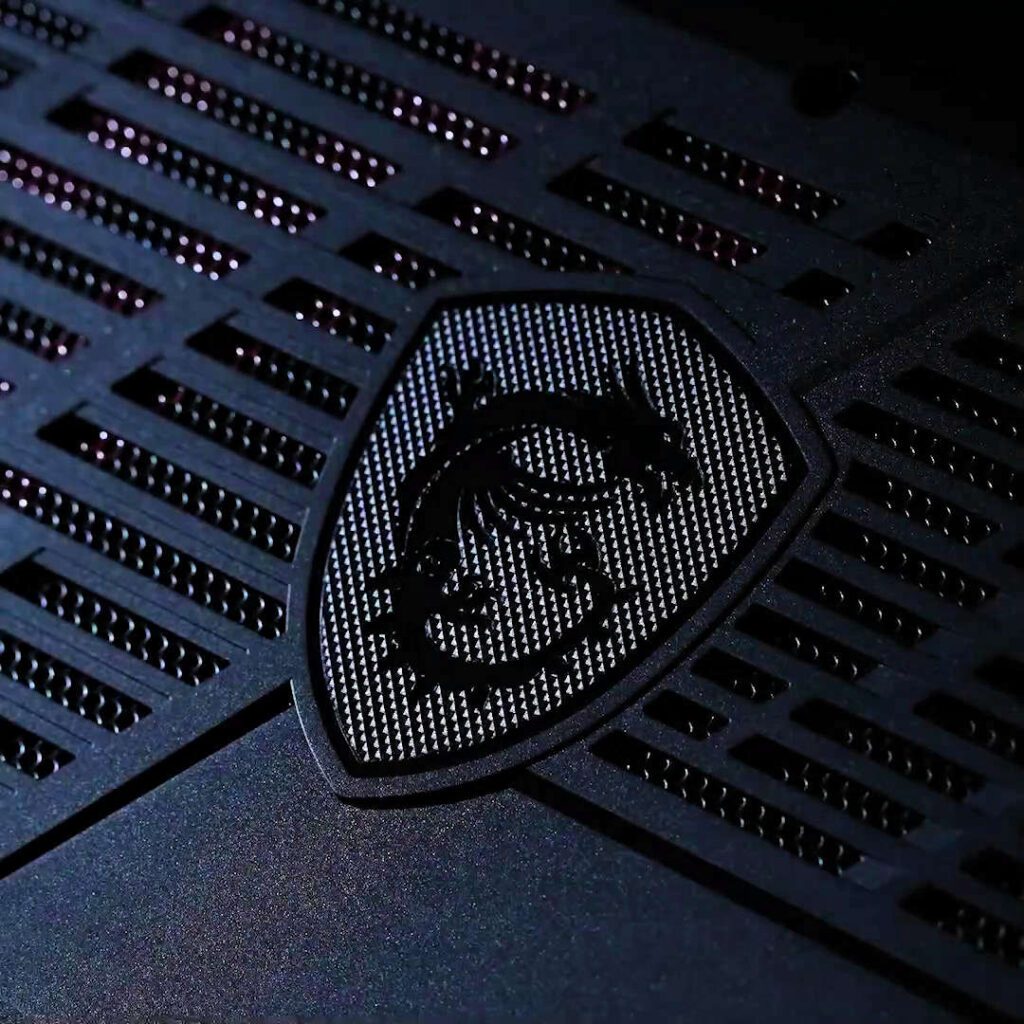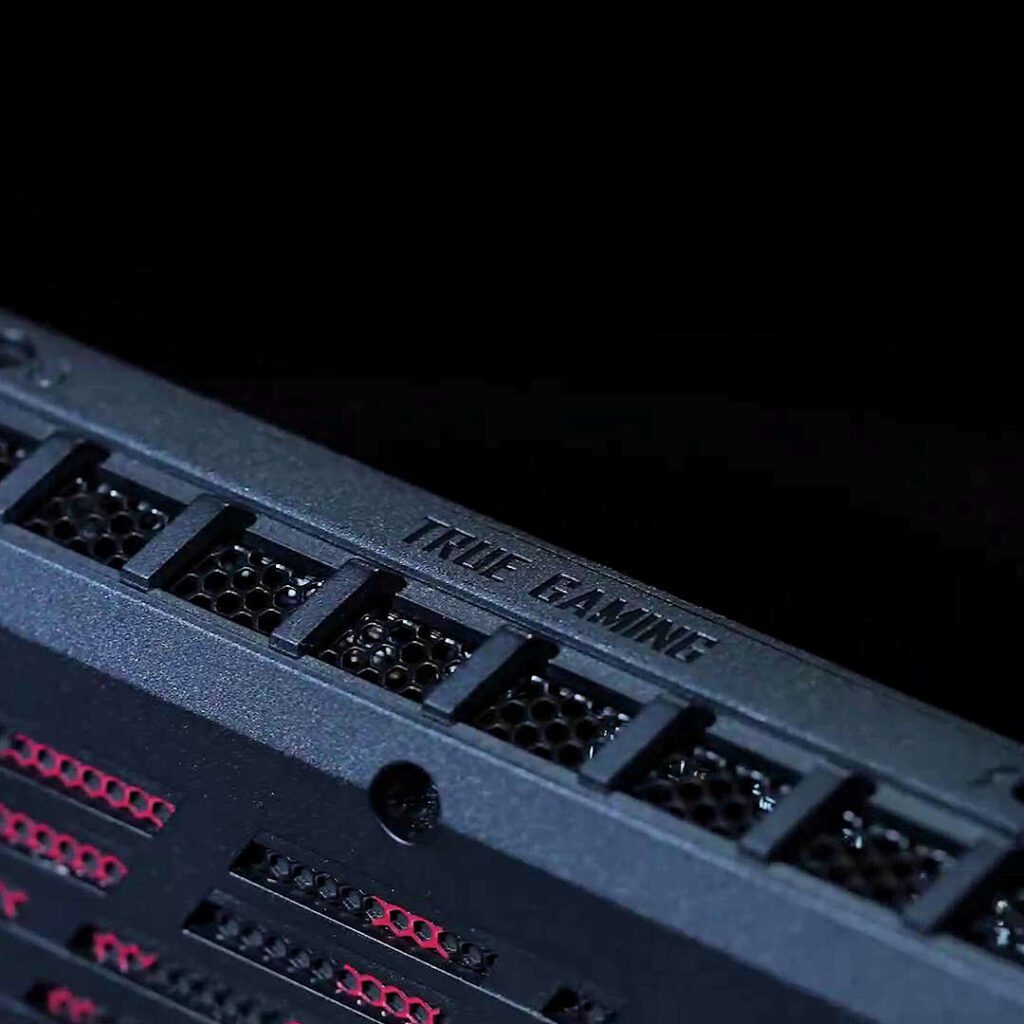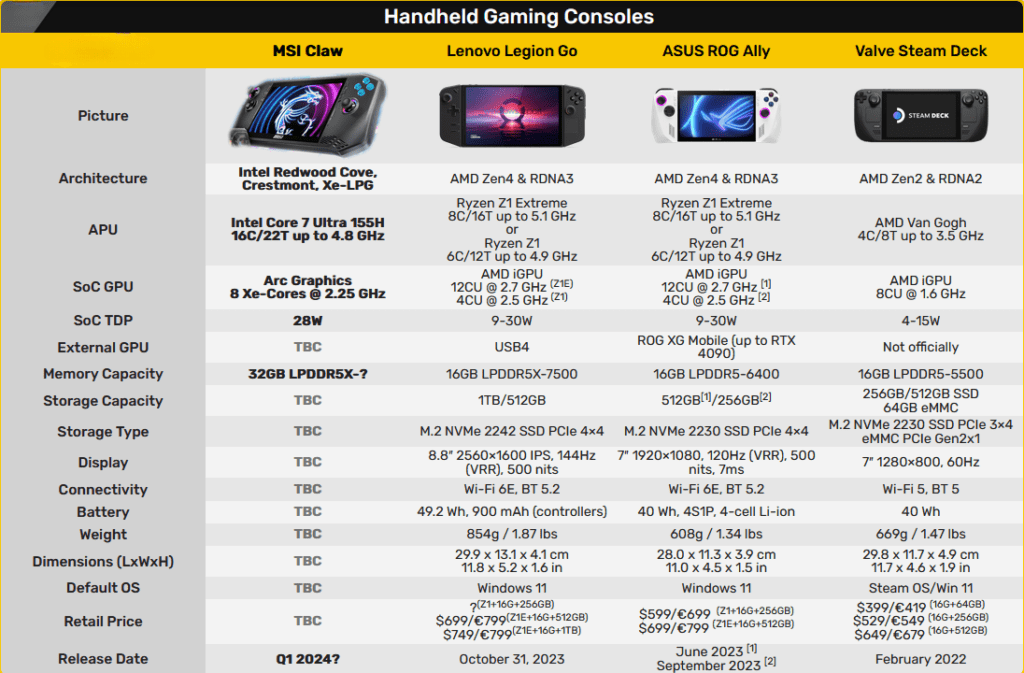MSI Set to Rival ASUS and Lenovo with Its Latest Gaming Handheld Revelation.
Within a day of MSI teasing on social platforms, details have surfaced about their new gaming handheld, dubbed CLAW. It’s equipped with an Intel Meteor Lake processor. The CLAW will harness the Intel Core Ultra 7 155H SKU, a powerhouse processor featuring 16 cores and 22 threads, surpassing the core count offered by Ryzen Z1 Extreme models.
Intel’s blend of Performance-cores and Efficient-cores in their hardware wasn’t always the go-to for handheld consoles, mainly because of the graphics output. However, the narrative is shifting with the launch of the Intel Core Ultra 100H series processors, marking a new era in handheld gaming hardware.

The configuration of the new system includes a combination of 6 Performance-cores and 8 Efficiency-cores, complemented by 2 additional Low Power-cores. It integrates a graphics subsystem powered by Arc Alchemist architecture with 8 Xe LP-Cores capable of reaching speeds up to 2.25 GHz. The Core Ultra 7 155H at the heart of the system is a 28W chip that can reach a max turbo power of 115W. Preliminary benchmarks suggest that its Arc Xe-LPG graphics can outperform the AMD integrated RDNA3 graphics found in Ryzen 7040 and 8040 series processors. This could set the stage for a riveting rivalry, potentially pushing Intel to further refine their driver support.

Confirmed specifications reveal that the upcoming device will boast up to 32GB of onboard memory, offering double the capacity compared to similar models like the Legion go and ROG Ally, without necessitating any modifications. MSI is anticipated to present a range of different memory configurations for this model to cater to the varying needs of users, as not all may require a memory capacity as extensive as 32GB.


The upcoming gaming handheld is set for its grand debut at the Consumer Electronics Show (CES) 2024, scheduled for next week. However, an early leak stemming from promotional materials intended for the MSI China market has already given enthusiasts a glimpse, somewhat diminishing the element of surprise. Should there be any fingers pointed for the unexpected reveal, it appears that the responsibility lies with MSI itself.




